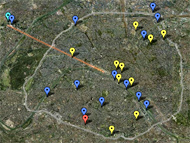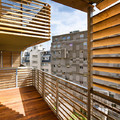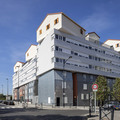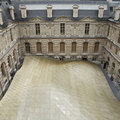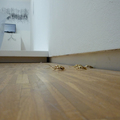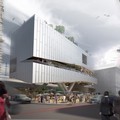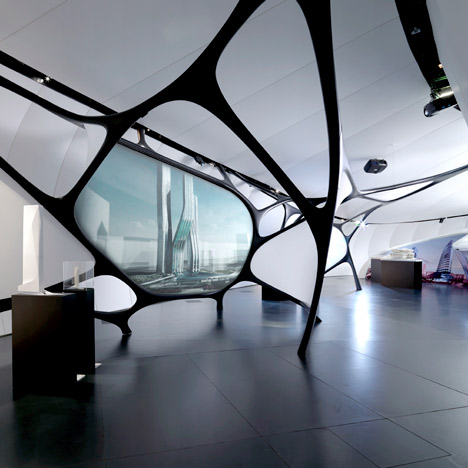 Zaha Hadid munkáinak kiállítása tekinthető meg a Mobile Art Pavilion-ban (lásd a DeZeen korábbi cikkét), ami New York, Tokyo és Hong Kong után végleges otthonára talált Párizsban.
Zaha Hadid munkáinak kiállítása tekinthető meg a Mobile Art Pavilion-ban (lásd a DeZeen korábbi cikkét), ami New York, Tokyo és Hong Kong után végleges otthonára talált Párizsban.
A pavilon az Arab Intézet előtti téren áll, a kiállítás április végén nyitott.
forrás: DeZeen.com, találta: Fazekas Kati;
Zaha Hadid@Paris from onnis luque on Vimeo.
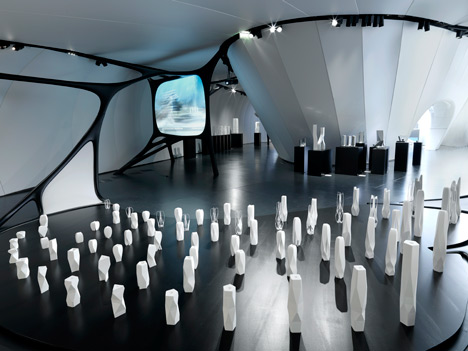
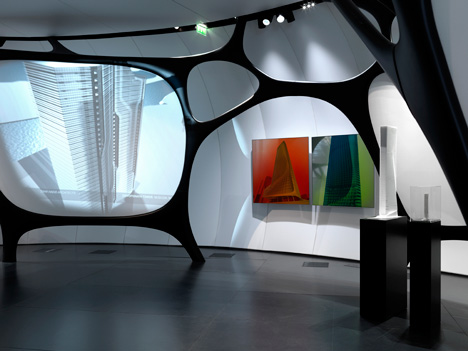
Az Une Architecture című anyag a Zaha Hadid Architects utóbbi években készült modelljeit, festményeit és egyéb munkáit mutatja be; 2011 október 30-áig lesz látogatható.
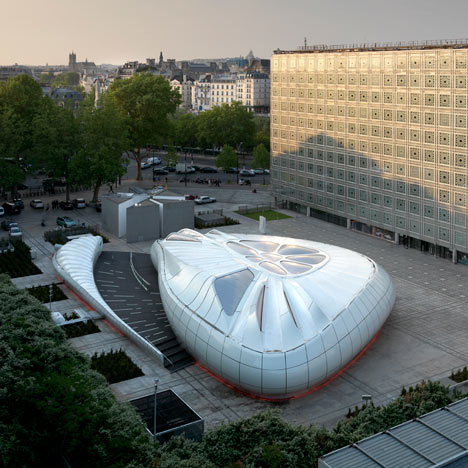
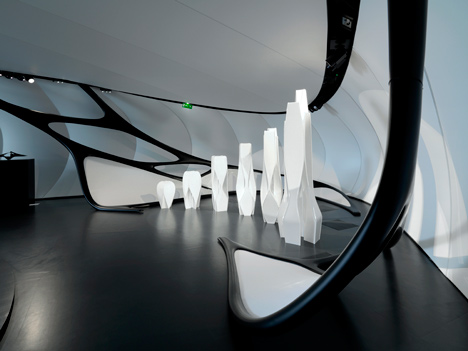
More projects by Zaha Hadid Architects on Dezeen »
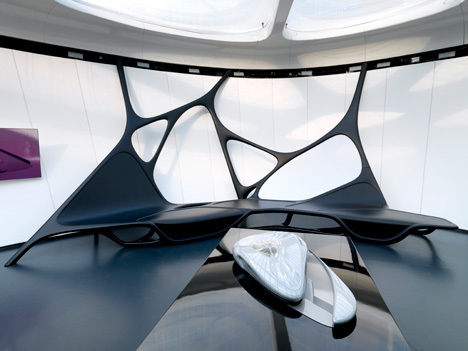
A következőkben az építésziroda sajtóközleménye:
Zaha Hadid - une architecture
April 29 – October 30
On 28 April, the exhibition designed by Zaha Hadid inaugurates The Mobile Art Pavilion, a new arts venue installed in front of the Institut du Monde Arabe.
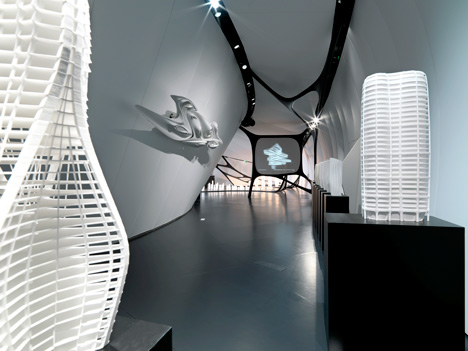
Created by Iraqi born British architect Zaha Hadid for CHANEL in 2007 and commissioned by Karl Lagerfeld, the Mobile Art Pavilion’s opening exhibition showcases a selection of work by the 2004 Pritzker Prize laureate Zaha Hadid, designer of some of the world’s most highly acclaimed projects.
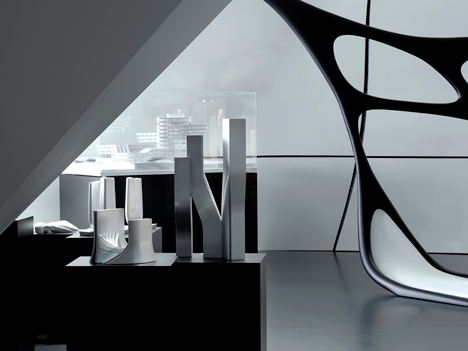
A genuine immersion into the architect’s formal and conceptual repertoire, this exhibition of Hadid’s work is presented within its own architecture.
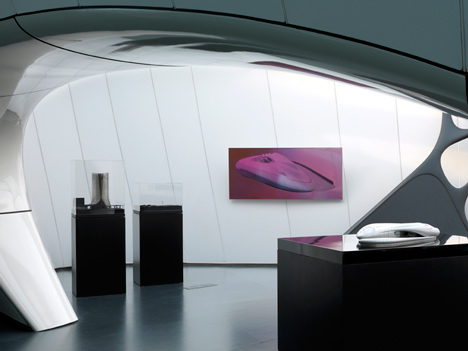
Translating the intellectual and physical into the sensual and using a wide range of media, the Mobile Art Pavilion unfolds through spatial sequences which engage the visitor in unique and unexpected environments.
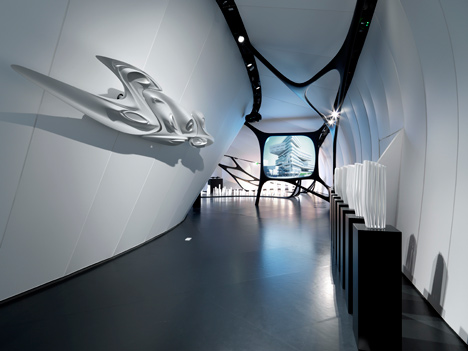
The Mobile Art Pavilion, donated by CHANEL to the Institut du monde arabe, will allow the institute to further develop its cultural programmes in the field of contemporary creation.
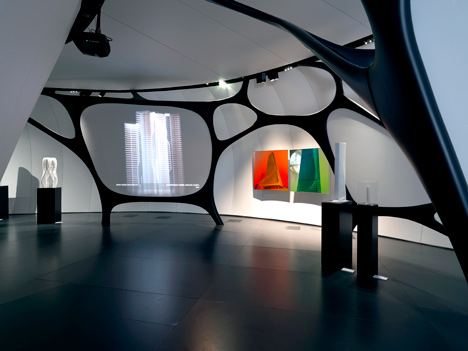
Mobile Art Pavillon: Historic
“Zaha Hadid” will be the first exhibition held inside the Mobile Art Pavilion since the installation of the pavilion in front of the Institut du monde arabe. CHANEL donated the pavilion to the Institut du monde arabe at the beginning of 2011.
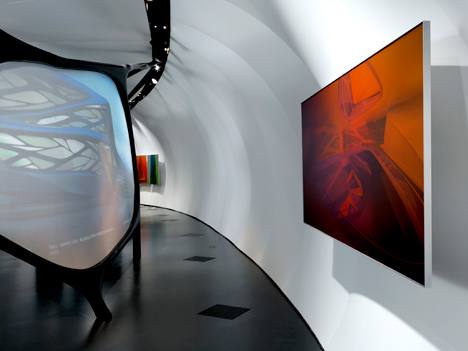
It had previously travelled to Hong Kong, Tokyo and New York since 2007. It will now have a permanent location at the IMA, where it will be used to host exhibitions in line with the centre’s policy of showcasing talent from Arab countries.
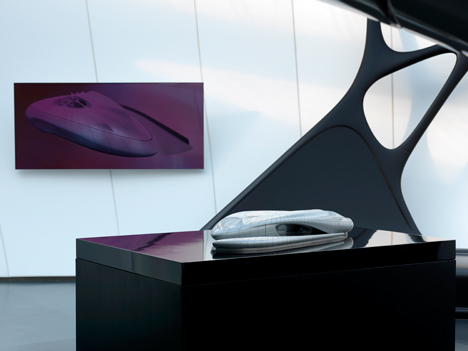
Zaha Hadid: About Mobile Art
“I think through our architecture, we can give people a glimpse of another world, and enthuse them, make them excited about ideas. Our architecture is intuitive, radical, international and dynamic. We are concerned with constructing buildings that evoke original experiences, a kind of strangeness and newness that is comparable to the experience of going to a new country. The Mobile Art Pavilion follows these principles of inspiration.” states Zaha Hadid.
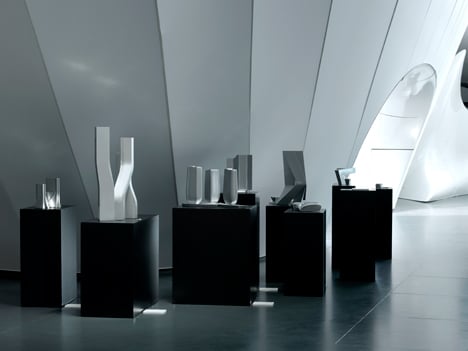
Arousing one’s curiosity is a constant theme in the work of Zaha Hadid. The Mobile Art Pavilion is a step in the evolution of Hadid’s architectural language that generates a sculptural sensuality with a coherent formal logic. This new architecture flourishes via the new digital modelling tools that augment the design process with techniques of continuous fluidity.
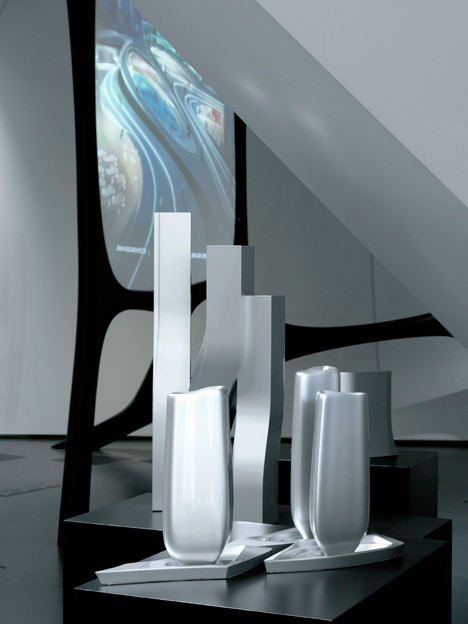
Zaha Hadid explains this process, “The complexity and technological advances in digital imaging software and construction techniques have made the architecture of the Mobile Art Pavilion possible. It is an architectural language of fluidity and nature, driven by new digital design and manufacturing processes which have enabled us to create the Pavilion’s totally organic forms – instead of the serial order of repetition that marks the architecture of the industrial 20th Century.
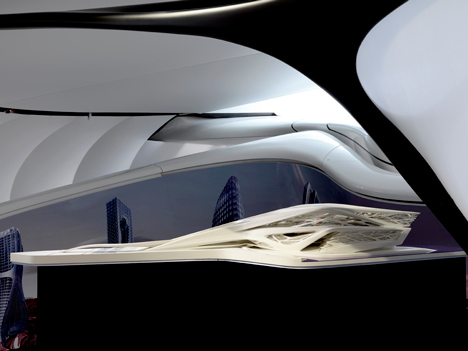
Design of Mobile Art
The Mobile Art Pavilion which has been conceived through a system of natural organisation, is also shaped by the functional considerations of the exhibition. However, these further determinations remain secondary and precariously dependent on the overriding formal language of the Pavilion. An enigmatic strangeness has evolved between the Pavilion’s organic system of logic and these functional adaptations – arousing the visitor’s curiosity even further.
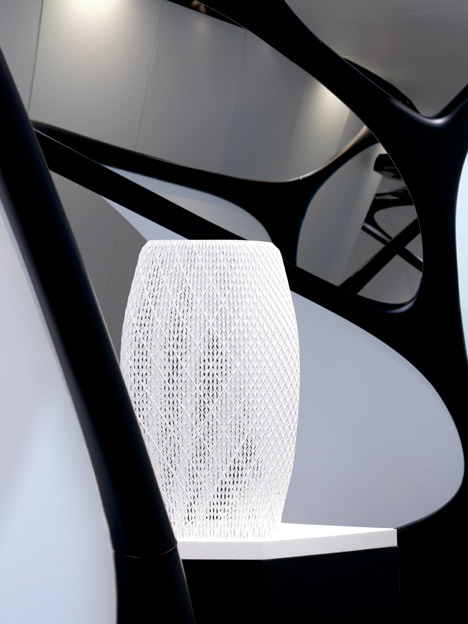
In creating the Mobile Art Pavilion, Zaha Hadid has developed the fluid geometries of natural systems into a continuum of fluent and dynamic space – where oppositions between exterior and interior, light and dark, natural and artificial landscapes are synthesised. Lines of energy converge within the Pavilion, constantly redefining the quality of each exhibition space whilst guiding movement through the exhibition.
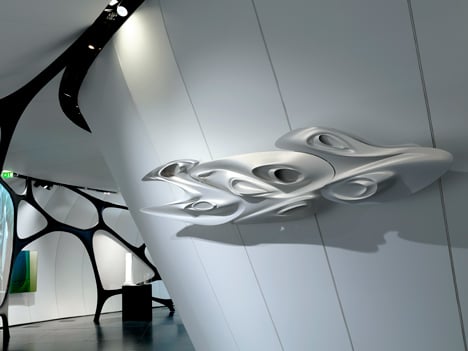
Content
The exhibition thematically explores a series of research agendas conducted by Zaha Hadid Architects in recent years. Different media is used to show the work; architectural models, silver paintings and projections. A variety of projects from all over the world will be shown, these will include: the Soho Central Business District in Beijing, the Spiralling Tower for the University Campus in Barcelona, the Guggenheim project in Singapore, the recently completed CGMCMA Tower in Marseille and the Pierres Vives building of the department de l’Herault in Montpellier, currently in construction.
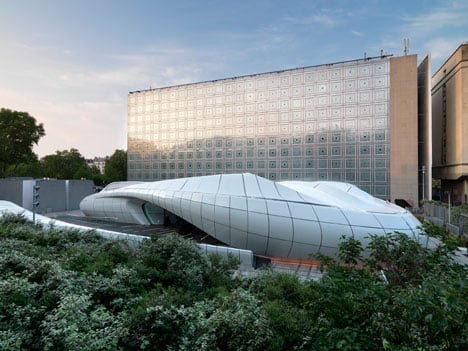
The exhibition will also showcase architectural projects from the Arab world such as the Abu Dhabi Performing Arts Centre in the United Arab Emirates, the Nile Tower in Cairo Egypt, the Signature Towers in Dubai and the Rabat Tower in Morocco. Furthermore the exhibition showcases Zaha Hadid Architects’ design research within the parametric paradigm. The parametric towers research project aims to develop a conceptual framework for the design of a prototype tower to be used as the basis for a set of parametric tools that can be applied to a multitude of different specific conditions.

Individual elements such as massing, skin, core, void, and structure are modulated individually and in concert. The final result is a fully malleable system that can differentiate families and fields of towers in response to user input or environmental considerations. Applications of the research into architectural practice are exemplified via a series of Tower competition entries on large urban scales.
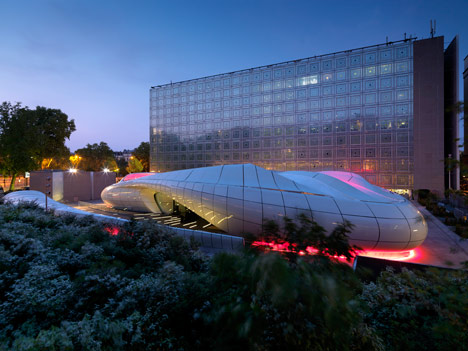
The visitor is invited to experience the work of Zaha Hadid Architects on three different levels, by discovering the Mobile Art pavilion (building), viewing the exhibition design (scenography) and seeing the work of the practice (exhibits).
- Arab képzőművészet a Chanel-pavilonban - a Fashion Time híre;


